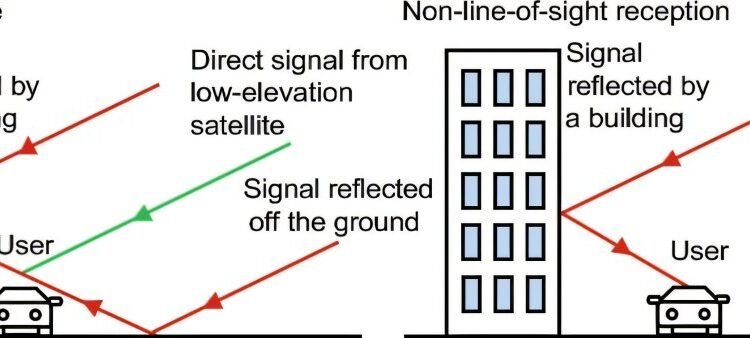
In urban environments, Global Navigation Satellite Systems (GNSS) often struggle with signal obstructions caused by tall buildings, vehicles, and other structures. These obstacles lead to Non-Line-of-Sight (NLOS) errors that cause positioning inaccuracies, which are particularly problematic for technologies like autonomous vehicles and intelligent transportation systems.
The need for real-time, effective solutions to detect and mitigate these NLOS errors has never been more urgent, as reliable GNSS-based positioning is vital for the development of smart cities and transportation networks.
Researchers have now introduced an innovative solution powered by artificial intelligence (AI). The method analyzes multiple GNSS signal features to accurately identify and differentiate NLOS errors. This breakthrough promises to significantly improve the precision and reliability of GNSS-based positioning systems, making it a critical advancement for urban navigation, where accuracy is essential.
Published in Satellite Navigation on November 22, 2024, this study introduces a cutting-edge machine learning approach to tackle NLOS errors in urban GNSS systems. Researchers from Wuhan University, Southeast University, and Baidu developed a solution using the Light Gradient Boosting Machine (LightGBM), a powerful AI-driven model designed to detect and exclude NLOS-related inaccuracies.
The model’s performance was validated through dynamic real-world experiments conducted in Wuhan, China, proving its effectiveness in challenging urban environments.
The method involves the use of a fisheye camera to label GNSS signals as either Line-of-Sight (LOS) or NLOS, based on the visibility of satellites. The researchers then analyzed a range of signal features, including signal-to-noise ratio, elevation angle, pseudorange consistency, and phase consistency.
By identifying correlations between these features and signal types, the LightGBM model was able to accurately distinguish between LOS and NLOS signals, achieving an impressive 92% accuracy. Compared to traditional methods like XGBoost, this approach delivered superior performance in both accuracy and computational efficiency.
The results show that excluding NLOS signals from GNSS solutions can lead to substantial improvements in positioning accuracy, especially in urban canyons where obstructions are common.
Dr. Xiaohong Zhang, the lead researcher, commented, “This method represents a major leap forward in enhancing GNSS positioning in urban environments. By using machine learning to analyze multiple signal features, we’ve shown that excluding NLOS signals can significantly boost the accuracy and reliability of satellite-based navigation systems. This has profound implications for applications such as autonomous driving and smart city infrastructure.”
This research holds immense potential for industries that depend on GNSS technology, including autonomous vehicles, drones, and urban planning. By improving the detection and exclusion of NLOS errors, this method can enhance the precision of GNSS systems, making navigation safer and more efficient in densely populated cities. As cities become smarter and more connected, this advancement will play a crucial role in supporting the next generation of transportation and navigation technologies.
More information:
Xiaohong Zhang et al, A reliable NLOS error identification method based on LightGBM driven by multiple features of GNSS signals, Satellite Navigation (2024). DOI: 10.1186/s43020-024-00152-7
Chinese Academy of Sciences
Citation:
AI identifies non-line-of-sight errors in global navigation satellite systems (2024, December 2)
retrieved 3 December 2024
from https://techxplore.com/news/2024-12-ai-line-sight-errors-global.html
This document is subject to copyright. Apart from any fair dealing for the purpose of private study or research, no
part may be reproduced without the written permission. The content is provided for information purposes only.








